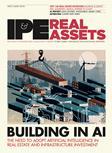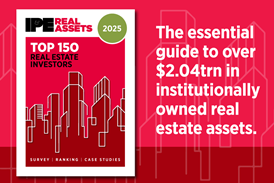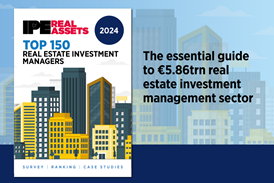Mark Fawcett, CIO at the National Employment Savings Trust (NEST), has argued that property and real assets will “play a key role” in the UK’s reformed defined contribution pensions market.
Fawcett, who leads the investment team at the state-backed DC pension scheme, told an audience of real estate fund managers that the UK market should look to Australia to see where the industry was headed.
“That is where we will be in 20, 30 years,” he told the IPD/IPF Property Investment Conference in Brighton on Thursday. “The asset management industry has grown massively and the demand for real assets has grown massively as well.”
Fawcett was responding to a question around the recent removal of compulsory annuity purchase for DC pension members in the UK.
He said: “We are going to see a big growth in the drawdown market in the UK. I think drawdown market needs to innovate massively… and I think real estate is going to be a key part of that.”
NEST, designed to support the UK’s auto-enrolment pension reform of 2008, reached more than one million members this year and has a growing asset base. The DC pension fund has established a 20% allocation to real estate, of which 70% is in unlisted UK property and 30% in global REITs.
“Our key risk is actually liquidity risk and it’s not the liquidity coming out, it’s the liquidity going in,” Fawcett said.
“Because our cash flows are so strong, we need to get money into the market and we work very closely with our manager… At the moment they can handle that quite easily, because we are relatively small, but over time that’s going to become a more important communication.”
Fawcett said this is why NEST adopted a hybrid unlisted/listed approach. “If the direct market doesn’t have the liquidity, then we can always put it into the listed market,” he said.
Liquidity was an issue that arose a number of times during the conference, and Fawcett questioned some of the assumptions around the so-called ‘liquidity risk premium’ – of generating superior risk-adjusted returns if an investor can lock up capital for a period – often associated with real estate.
“That illiquidity risk premium varies massively through time,” he said. “You really earn it when when you are buying in 2008, 2009, when no one else wants to provide the liquidity.
“Now, if it exists, it’s marginal at this point in the cycle. [It is the] same with infrastructure – everyone is chasing infrastructure assets and returns are going down.”











